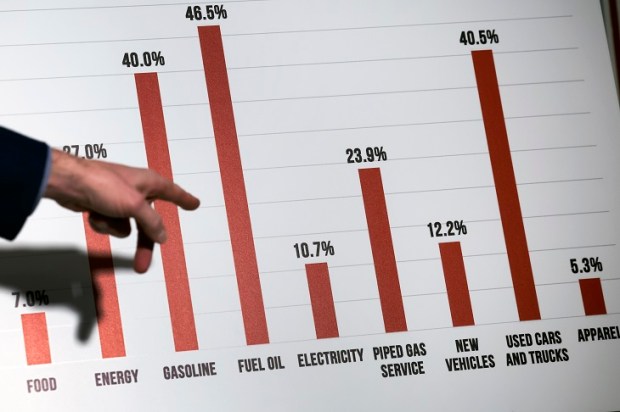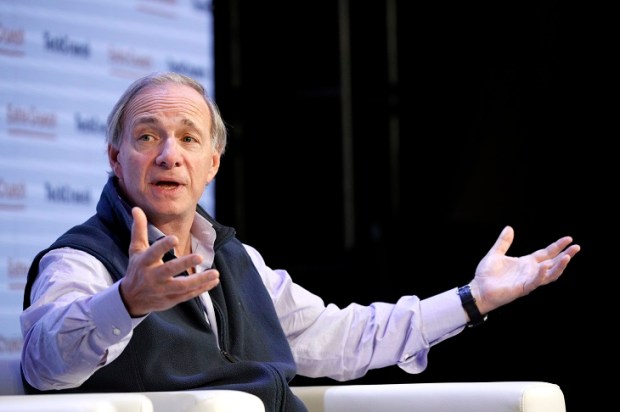One of my favourite memories is visiting family friends as a kid on their 3,000 acre farm near Coonabarabran, NSW. There was something special about their farm shed – a rustic hark back to a bygone era that had stood the test of time. I remember the ‘rules of the shed’ sign that had been hand-painted on a timber board, common-sense advice that had been developed over many years.
The last two rules struck me for their wisdom and candour: ‘If it ain’t broke, don’t fix it!’ and ‘If you don’t know how to operate it, leave the bloody thing alone…’ As a kid who was fascinated by machines, there was something about this tough, common-sense advice that made me think the author had witnessed some unfortunate soul lose an arm or a leg in an avoidable accident.
Constitutions are much more dangerous than farm implements and power tools, so before making fundamental changes to ours we should know what we are doing and why we are doing it.
According to the Oxford Dictionary, a constitution is:
‘A body of fundamental principles or established precedents according to which a state or other organisation is acknowledged to be governed.’
What then are principles? According to the same principles are, ‘a fundamental truth or proposition that serves as the foundation for a system of belief or behaviour or for a chain of reasoning’.
A constitution is a nation’s operating system. It codifies our foundational principles. Like Apple IoS or Microsoft Windows, it’s the underlying system that our apps sit on top of. It’s one thing to do a minor security update, quite another to make an untested change to the way the system works.
At this point, people smarter than me could explain the hypocrisy of the voice and how it seeks to create two separate classes of people rather than treating us all the same. I’ll approach it differently.
If our constitution is so bad and in need of change, then how has it served us compared to other resource-rich countries? As a resource-rich nation, you’d think being one of the wealthiest countries in the world would be a given. As it turns out, that isn’t such a forgone conclusion.
Let’s compare Australia with resource-rich Venezuela, Iraq, Afghanistan, or the Democratic Republic of Congo. A cursory glance shows us that, like being born into a wealthy family, being a resource-rich country isn’t an automatic ticket to some form of ideal society, much less a utopia. These countries were built on operating systems different to Australia’s, and despite enormous wealth, have been completely spoiled.
Consider the West vs Africa, the Middle East, or South America. What are we doing right that they are doing wrong? What fundamental operating system leads to a trust-based App store, and what leads to a system full of computer viruses, identity theft and people wanting to migrate elsewhere?
Given Labor’s eagerness to promote and go ahead with the Voice, they should have done a decade’s worth of PhD-level research to understand how the Voice will work and what effects it will have, running a pilot study where the mechanics of the Voice are tested live in parliament, simulating the effects of the proposals enacted – before hard-coding it into our constitution.
Instead, the strategy is based on emotion, with complete ignorance of how the Voice will work and what effects it will have.
By contrast, think of the work and anecdotal experience that went into creating our road rules. Now imagine that in addition to driving on the left with opposing traffic on the right, we were going to codify in law a new central lane that can go forward, backwards, and stop the other traffic to turn right or left. Imagine we were going to put that into law before thinking through how it will work, then thoroughly testing and resolving bugs we have unintentionally created. Our Labor MPs haven’t ridden a scooter in Rome much less thought through a three-way system of government.
Let’s hope that Labor doesn’t have any major changes to our road rules in mind. Engineering standards don’t get changed for emotional reasons. Imagine that Labor decided they wanted to mix up the operating system for commercial airline aircraft maintenance. Things get real very quickly when a plane crashes. No matter how good you are at avoiding blame, you don’t want to be the person who has messed with the maintenance rules when that happens.
Of course, political parties specialise in avoiding blame, and the blame for the unintended consequences of the Voice would be child’s play for Labor. The effects will be too ethereal to be pinned down, unlike plane crashes. There’s always someone or something else to blame. Worst case, you are out of government in 3 years and absolved of all responsibility. It’s a strange system that allows governments to change fundamental aspects of the operating system without thinking through, testing, and justifying the change, then being responsible for the outcome. Imagine if Steve Jobs had abdicated responsibility for a major hack while leading Apple.
The problem we have now might be more fundamental. The influential people in and outside government have no knowledge of how systems work, but are experts at directing emotion. They don’t realise that without testing a process to know how it works when the going is smooth and how it responds when the going is rough, they are being careless as well as sidestepping responsibility – a far cry from the sympathetic and supportive position they claim for themselves, and miles away from ‘really getting’ the plight of the people they purport to save.
Paul Batten is an entrepreneur and former McLaren vehicle dynamics engineer and test driver.

























